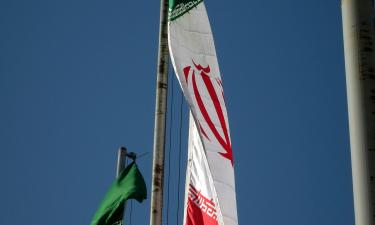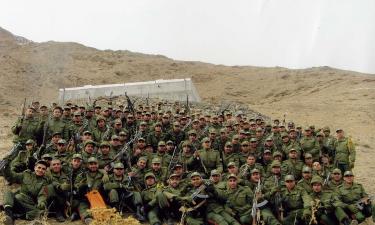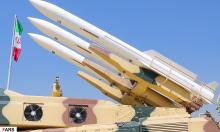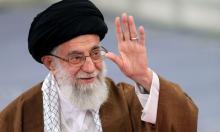Putin and Lukashenko certain CIS must exist
Belarussian President Alexander Lukashenko believes there are no problems in the relations with Russia
Negotiations between the presidents of Russia and Belarus took place in the resort city of Sochi on April 4, 2005. Vladimir Putin and Alexander Lukashenko's meetings cannot be referred to as “frequent” in spite of the fact that Russia and Belarus comprise the Unified State. The previous meeting took place during the work of the CIS Summit in October of 2004. The political life of the Commonwealth of Independent States has experienced considerable changes over the recent six months. The revolutions in Ukraine and Kyrgyzstan have cast doubts on further existence of the Commonwealth. Lukashenko and Putin did have a lot of subjects for discussion. 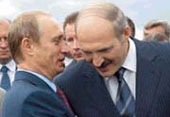
Vladimir Putin stated in the beginning of the meeting that they could discuss the suggestion from the President of Kazakhstan, Nursultan Nazarbayev, who suggested cutting the administrative personnel of the Commonwealth, abolishing some of its departments and setting up the CIS Security Council. The problem of reforming the Commonwealth of Independent States will most likely be given more attention in the near future, taking into consideration a not-very-CIS-friendly attitude of Ukraine and Georgia.
There is no clarity on the issue of joint currency for the time being. When Vladimir Putin visited Armenia at the end of March, he stated that the CIS did not have a goal of the economic integration. The Commonwealth was established to make the break-up of the USSR happen in a civilized way. The Russian president believes, however, that one should not give up the Commonwealth as a bad job, for it is still a perfect organization to exchange opinions between administrations of its members. “We came to conclusion that the CIS must exist. If it cannot solve principal issues, it must exist as an agency for top talks,” Belarussian President Alexander Lukashenko stated at the conference with Putin.
The joint economic space, which incorporates Russia, Belarus, Kazakhstan and Ukraine, serves the purpose of the economic integration between the countries of the former USSR. Putin and Lukashenko believe that Russia and Belarus do not have any outstanding problems of the economic cooperation. “There are no big problems on the matter, and I can't distinguish small ones either,” Alexander Lukashenko said.
However, Russia and Belarus do not have a common approach to the question of the joint currency. The currency of the Unified State was originally planned to be introduced in the very beginning of the current year. The date was pushed back for a year, till January 2006, according to the request from the Belarussian government. The joint currency issue is the key aspect of further development of cooperation between Russia and Belarus, RIA Novosti quoted an anonymous source in the Kremlin. In addition, the two countries have not achieved an agreement regarding the establishment of the joint gas-transport enterprise.
There are definitely a lot of problems that Russia and Belarus have to deal with. However, if Russia's relations with Belarus are compared to the ones with Georgia, the state of things in the Unified State seems to be almost perfect indeed. Alexander Lukashenko is known for his harsh and resolute statements, especially when it goes about gas prices, but he definitely can't match his Georgian colleague, Mikhail Saakashvili.
As far as the series of political crises in the Commonwealth is concerned, one should say that Vladimir Putin's meetings with his CIS colleagues will inevitably be viewed from the angle of a possible revolution in Belarus, Kazakhstan, Armenia, Uzbekistan, etc, and Russia's actions in response.
According to the results of the meeting between Lukashenko and Putin, the Russian administration intends to give the first priority to the development of economic links. However, it would not be correct for the two presidents to talk about the economic part of the relations between Russia and Belarus. Politics is the continuation of economics, whereas economics is the ground of politics.
Subscribe to Pravda.Ru Telegram channel, Facebook, RSS!
